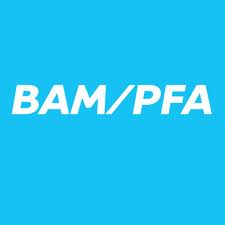
LYNNE SACHS
Your Day is My Night
Pacific Film Archive
University of California Berkeley Art Museum
November 20th, 2013
Introduction by Jeanne Finley
It gives me tremendous pleasure to introduce Lynne Sachs this evening. Lynne describes her films as explorations of the intricate relationship between personal observations and broader historical experiences.
As viewers, we experience that personal and historical exploration through the act of conversation. Lynne’s films invite us as viewers, to enter into a conversation between the filmmaker, her subjects, and the circumstance in which the conversation takes place. This is a privileged position that it is both rigorous and intimate. And it is a position that can only be offered because whether the film we are watching is an essay film, or a film based on interviews, or a performance based film — Lynne is a master of the art of collaboration.
True conversations, are by their very nature, collaborations. Every one of Lynne’s films embody the essence of collaboration throughout all levels of its creation. Collaboration is at the structural heart of her films — she invites those she is filming to engage with her and participate in making the film through conversations. This collaborative process also spreads out to the entire crew she works with, all of whom participate in the conversations that guide the creation of the film. And then in its furthest reaches, she invites us, as viewers, into collaboration. Her works are not complete until we watch, we participate, we collaborate and enact our own conversations with the film and those in it, through our imaginative process. Lynne’s films lead us through her creative cinematic response to the documentary materials she collects, by engaging everyone involved in the films’ process in this multi-layered collaborative conversation.
Full disclosure here. I have had the opportunity to collaborate with Lynne, not only through participating in viewing her films, but Lynne and I collaborated in the early part of this century on a project in Bosnia called Dom Promija — or, The House of Drafts. I had lived in former Yugoslavia for a long time, and Lynne had never been there when we got to Sarajevo, but she was able to engage in collaborative conversations from the first day we arrived because her conversations are explorations born from deep curiosity and an insatiable desire to discover and learn. This curiosity and desire is palpable, and the people around her feel this, and immediately jump in with her on the exploration, traveling together in the filmmaking process to discover. Her in-person conversations, like the film she makes from them, are extended questions .
I’m not going to speak much about the film we are seeing tonight, because you will see it and Lynne is here to address it. But I want to mention two earlier films, each quite different in form, yet both of which, like the film you will see tonight, have this element of collaborative conversation at their core.
The film, “The House of Science” which Lynne directed in 1991, is an essay film. It is a conversation between the material of the film and the voice of the filmmaker that explores the divide of the feminine body and psyche through historical scientific representations. Lynne, asks questions in the film, and then lets the film respond. Or she lets footage in the film ask a question and she responds through the essay voice-over format. In many ways, although her later films diverge from the essay film format, they all retain that element of a powerful filmmakers voice responding to non-fiction or documentary materials by questioning its veracity, its authority and its potential to evoke and represent experience.
Investigation of a flame” which was directed in 2002, is a documentary film that relies heavily on interviews with members of the Catonsville 9, a group of priests and lay people who, in 1968, burned draft records with homemade napalm in front of the Maryland draft board office. Lynne doesn’t come directly at the interviews, but allows the interviews to wander – something discouraged in traditional documentary filmmaking. They wander both visually through the camerawork, and through the conversations she has with her subjects. It isn’t an essay film in structure because it lacks a first person narrative, but it is an essay film in its conversational nature between the documentary material and the filmmakers voice.
Tonight’s film uses a completely different structure, the structure of performance, integrated with documentary material to create this collaborative conversation to explore privacy, intimacy and urban life within the immigrant community. I’ve followed this film since Lynne’s first imaginings about it and it is a remarkable accomplishment, and a film that I can watch many times and still see a new film because each time I watch it, the conversations I have with the film as I watch are always new.
Lynne has shown her films all over the world — this film premiered at the Museum of Modern Art in New York. And she has received numerous grants and awards for her work including a Rockefeller Foundation Award, a MacDowell Fellowship and a Jerome foundation grant. But more important than any of those remarkable achievements, is the collaborative spirit with which Lynne engages with the experimental documentary community. Like her films, her relationship to that community is a collaborative conversation, constantly exploring the possibilities of the voice, the material, the observations and the community’s response to contemporary, as well as historical experience. It is this voice, this question that coupled with Lynne’s rich filmography, that inspires all of us to think more deeply about film, about witnessing and about what it means to be human in this unstable world.
Please welcome Lynne Sachs
Jeanne Finley

Jeanne Finley
